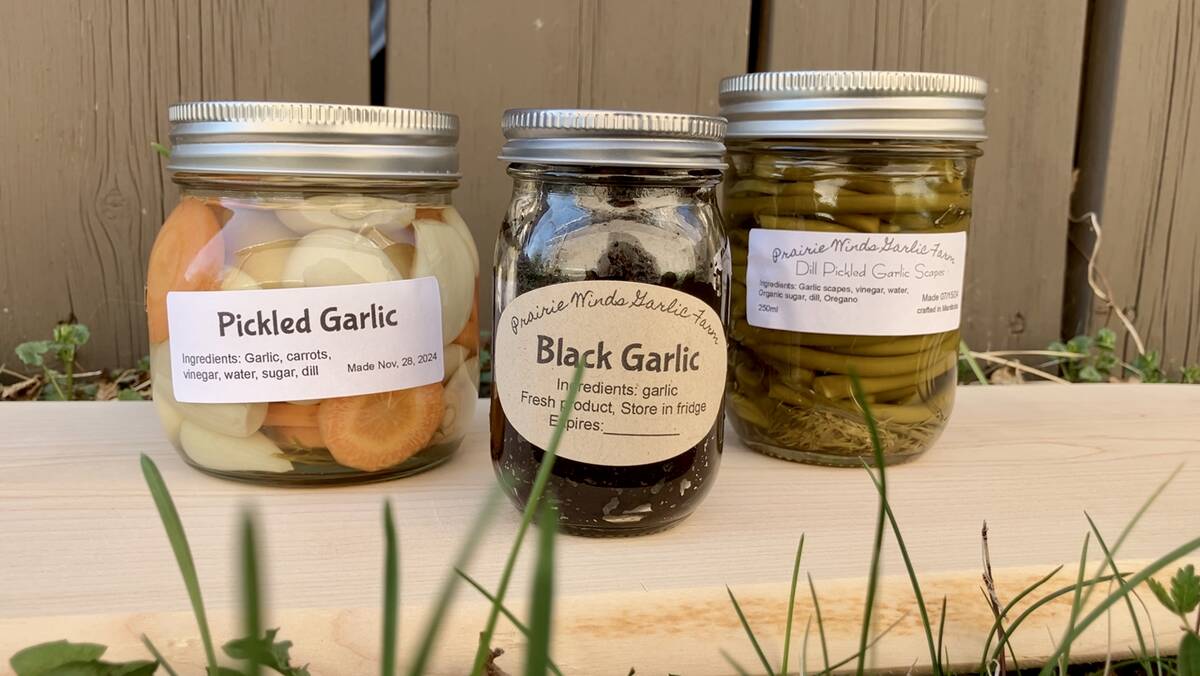High yielding Faller and Prosper have already been registered, while CFIA approval for ND Elgin is expected soon
Two American wheat varieties have made it through the Canadian variety registration system, and the Canadian Food Inspection Agency is likely to approve a third this year.
Faller and Prosper were registered by the CFIA’s variety registration office earlier this year, and ND Elgin has been supported for registration by a Canadian recommending committee and is likely to be approved for commercial production within the next few months.
Faller is a high-yielding U.S. dark northern spring wheat.
Its protein content is lower than many Canada Western Red Spring varieties, but its milling performance is well known to millers in the United Sates and is considered by many North Dakota growers to be one of the highest yielding wheat varieties available.
Read Also

Growing garlic by the thousands in Manitoba
Grower holds a planting party day every fall as a crowd gathers to help put 28,000 plants, and sometimes more, into theground
In U.S. trials from 2007-2013, Faller yielded 15 to 20 percent higher than Glenn and reached maturity one day later. Straw strength was listed as medium and protein was 1.5 percent lower than Glenn.
Prosper has yield potential and protein content similar to Faller.
Seed Depot of Pilot Mound, Man., is the Canadian distributor for both varieties.
Faller and Prosper were both grown in Canada last year but were produced only under identity preserved contracts.
The registration of Faller and Prosper in Canada is notable because the two varieties were among the first foreign seed varieties to be granted plant breeders’ rights under Canada’s enhanced PBR framework.
Canada’s PBR legislation was updated earlier this year to comply with an international seed convention known as UPOV 91.
Supporters of UPOV-91 said its ratification and adoption in Canada would encourage investment in plant breeding and improve access to foreign wheat varieties that are well-suited to Canadian growing conditions, particularly the eastern Prairies.
“While this is exactly what we were expecting with updated legislation, it is still very exciting to see it happening,” said Dave Baute, president of the Canadian Seed Trade Association.
“Our farmers now have access to new Canadian developed varieties and also to international varieties that would never have come to Canada without the new legislation.”
In a recent news release, the CSTA said it has seen an increase in the number of PBR applications since Canada’s PBR framework was updated in February.
The CSTA is reminding farmers and other stakeholders that obligations under the new PBR framework have changed. Details can be viewed online at www.PBRfacts.ca.
“We are entering a new era of opportunity with PBR 91,” said Baute. “But with the opportunity comes obligations. Farmers, seed conditioners, retailers and buyers of harvested material all have a role to play to ensure that the investment continues to grow and the new varieties keep coming.”
Faller and Prosper will be temporarily placed in a new “interim wheat class” created by the Canadian Grain Commission. It will decide late if they should be reassigned to another class or if the interim class should be renamed and retained permanently.
Elgin has not yet been registered in Canada, but CFIA approval is expected shortly. Once it is registered, it will be distributed in Canada by FP Genetics.
Pedigreed seed for the variety will be multiplied by Canadian seed growers this year. Certified seed should be available for commercial production next year.
Earlier this month, North Dakota State University issued a warning reminding Canadian wheat growers that it is illegal to acquire Elgin from American seed suppliers.
Canadian growers who buy the seed from an American supplier could face fines for contravening Canadian PBR laws.

















